The Joke of Eradicating Online Gambling
The investigation into the Communication and Digital Affairs Ministry employees backing online gambling is expanded to include many people. Ill-gotten gains from a political operation.
maaf email atau password anda salah

The investigation into the Communication and Digital Affairs Ministry employees backing online gambling is expanded to include many people. Ill-gotten gains from a political operation.
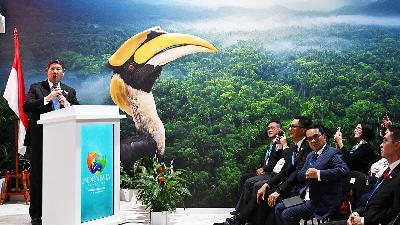
The presence of Hashim Djojohadikusumo at COP29 in Azerbaijan was considered as bearing a conflict of interests. He was promoting the business of Arsari Group.
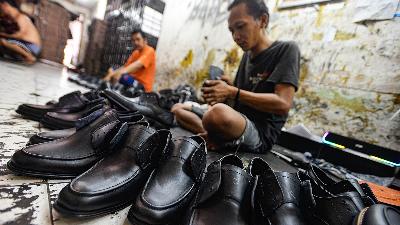
The disbursement of People’s Business Credit faces numerous challenges. Farmers and small business owners are vulnerable to loan sharks and middlemen.
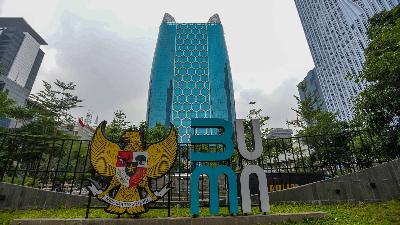
The plan for a super-holding for state-owned enterprises dates back to the New Order era. The SOEs Ministry will be replaced by a giant corporation.
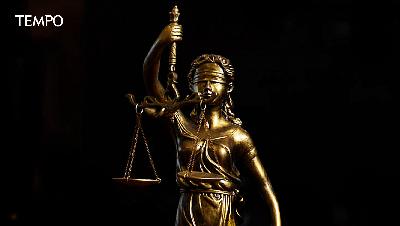
With the Supreme Court’s judicial mafia, when one branch is lopped off, another 10 grow in its place. It needs to be comprehensively cleaned up.

The Supreme Court dismissed three judges suspected of accepting bribes in the Ronald Tannur case. This adversely impacts efforts to improve the judiciary.
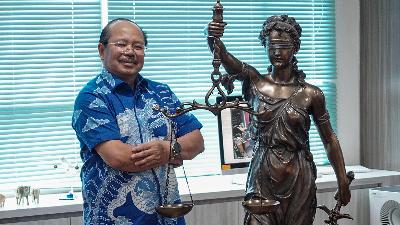
Judicial Commission Chair Amzulian Rifai on the corruption in judicial institution involving judges.

Driven by corporate demand, helicopter business opportunities continue to grow. Operators are increasingly expanding their fleets.

There is an increasingly real threat to Indonesia’s biodiversity. It cannot be overcome through empty slogans at international forums.
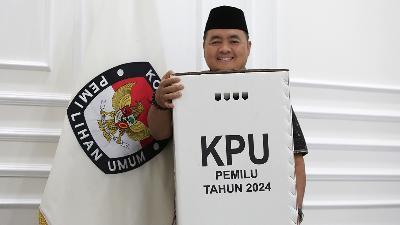
KPU Chair Mochammad Afifuddin on turbulence within his institution following the dismissal of Hasyim Asy’ari, and the Constitutional Court’s decision on the regional head elections.
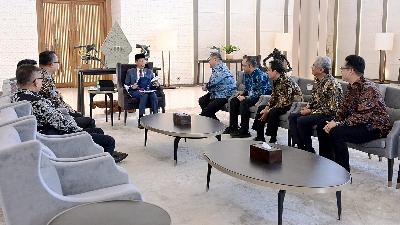
Various parties from the National Police Chief to the State Palace are accused of interfering in the KPK leadership candidates selection process. The candidates are divided into four clusters.
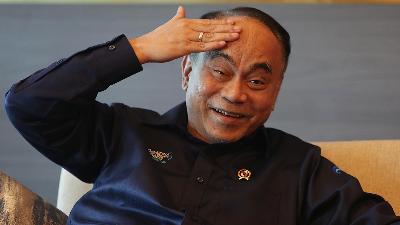
Tempo’s interview with Minister of Communication and Informatics Budi Arie Setiadi about Jokowi’s campaign before the end of his tenure.

As President Jokowi's term neared its end, instructions were given to promote the government's achievements, and billions of rupiah in contracts were offered to the media.
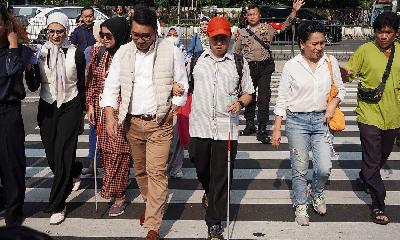
Jakarta governor and deputy governor candidates promise improvements in inclusive public transportation.
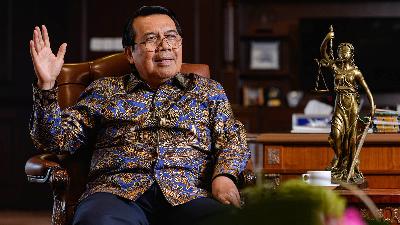
Supreme Court Chief Justice Muhammad Syarifuddin uses artificial intelligence to handle cases. Case brokers continue to be a threat.
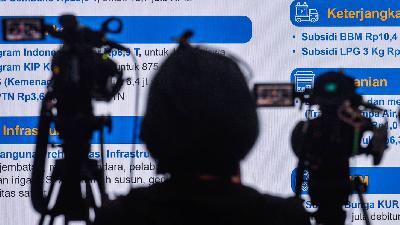
Media companies are experiencing upheaval due to the rapid changes in the business landscape. The industry is moving towards a new equilibrium.

Using a variety of pretexts, the political parties replace elected legislative candidates. This is a betrayal of the people’s choice.
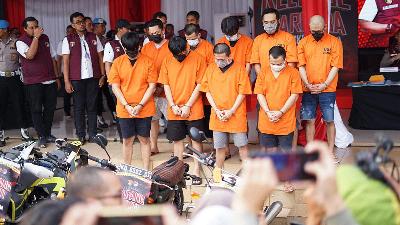
Hendra Sabarudin’s drug network distributed methamphetamine from Tarakan prison starting in 2017, allegedly aided by police and prison guards.
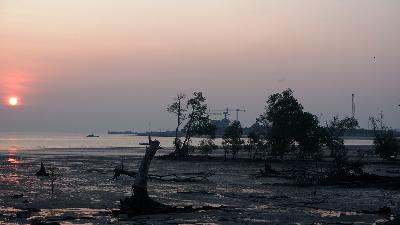
The government plans to dredge 17.6 billion cubic meters of sea sand and sediment, altering the landscape and destroying marine life.
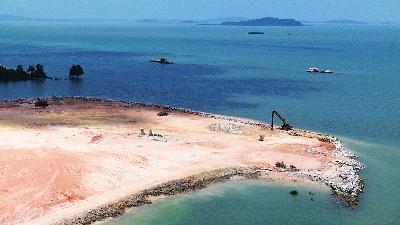
The government designated a number of areas as zones for cleaning sediment and sea sand.

Anindya Bakrie ousts Arsjad Rasjid from the position of General Chair of the Indonesian Chamber of Commerce and Industry (Kadin). The Palace’s support shifted.
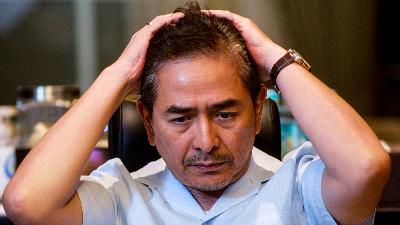
Anindya Bakrie ousted Arsjad Rasjid as the Chair of the Indonesian Chamber of Commerce and Industry (Kadin). The organization is becoming like a political party and enjoys large funds coming in from overseas.

Gubernatorial candidates are trying to win over the votes of Anies Baswedan supporters in the Jakarta regional election. Jokowi reportedly shifted his support.
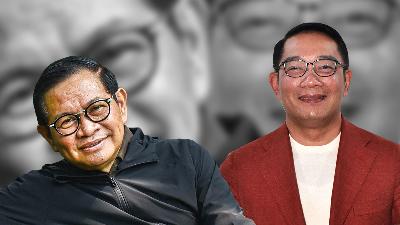
Pramono Anung and Ridwan Kamil shed light on the dynamics surrounding their appointments as Jakarta gubernatorial candidates.
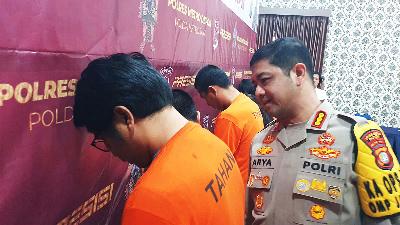
Police uncover baby trafficking syndicate operating in Java-Bali since 2023. Five babies were already sold.
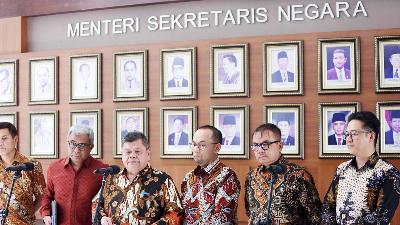
News summary on the conflict of interest of KPK leadership candidates and 44 ministries in Prabowo’s government.
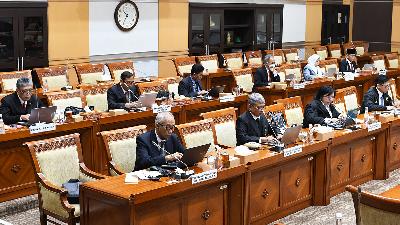
Commission III of the House of Representatives rejected all the Supreme Court judge candidates proposed by the Judicial Commission. The rejection allegedly was due to their favored candidate failed to pass.
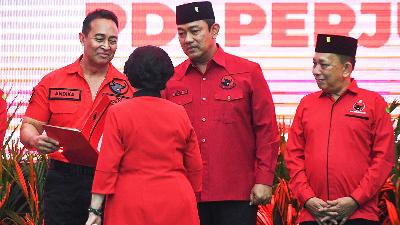
The Indonesian Democratic Party of Struggle (PDIP) strives to counter candidates supported by the Palace. It is an early projection for the 2029 General Elections.
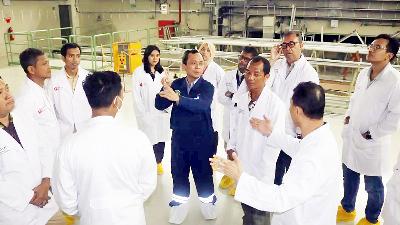
BRIN is designing the Peluit-40 nuclear reactor to replace diesel power plants, claiming it to be safer.
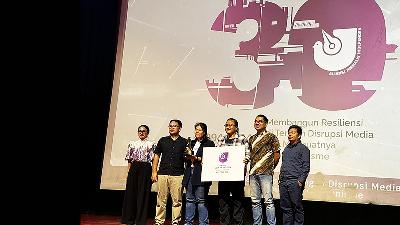
The Bocor Alus Politik podcast receives the Udin Award that we dedicate to our viewers and readers.
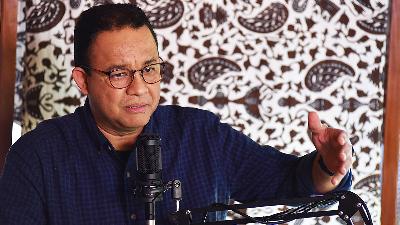
An exclusive Tempo interview with Anies Baswedan regarding his chances to run in the Jakarta regional head election.

Jokowi and Prabowo’s coalition are maneuvering to thwart Anies Baswedan’s candidacy in the Jakarta regional head election. Cabinet posts are being offered as inducements.

Tommy Hermawan Lo’s name emerges following the mention of Mr. T in online gambling that involves human trafficking case. He is a director at a casino management company.
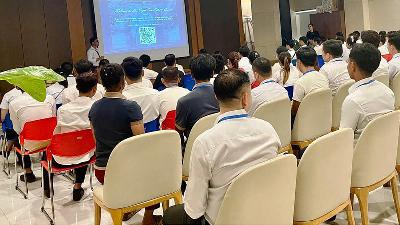
Victims of human trafficking for online gambling and scamming in Cambodia claimed of being forced to work 12-hour shifts and being beaten. Recruitment is still ongoing.
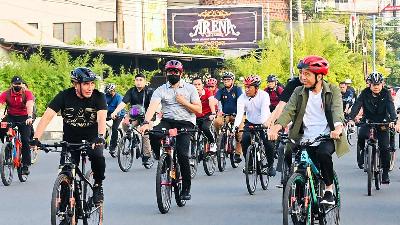
The battle in the presidential election is set to continue in regional head elections. The PDI-P is determined to challenge President Joko Widodo’s candidates.
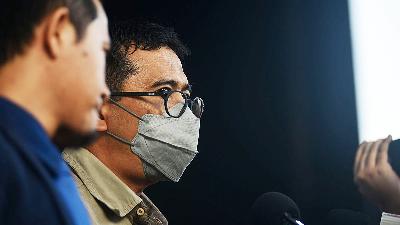
Personal protective equipment corruption suspect, Budi Sylvana, denied inflicting up to Rp300 billion of losses to the state. He revealed the roles of other officials in the case.
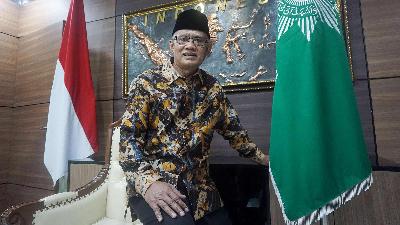
Muhammadiyah follows Nahdlatul Ulama’s step to accept mining concession offer from the government. Muhammadiyah General Chair Haedar Nashir explains about it.
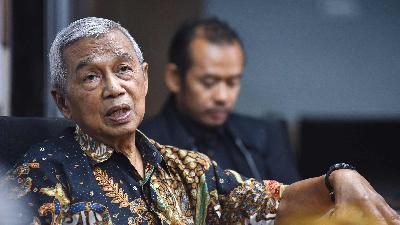
Muhammadiyah accepts the government’s mining concession offer. Many members are against it. Busyro Muqoddas, Chair of Muhammadiyah’s Law and Human Rights Council explains.

Muhammadiyah cadres and administrators are divided in their response to the mining concession. There are whispers from the government and the entrepreneurs.

Retno Marsudi dismissed the idea that the government is merely meddling foreign affairs. She emphasized that Indonesia is a trusted partner on the international stage.
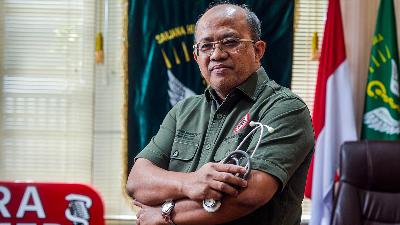
Chair of IDI, Mohammad Adib Khumaidi, discusses the polemic over the plan to allow foreign doctors to practice in Indonesia. He emphasizes stringent regulations are necessary.
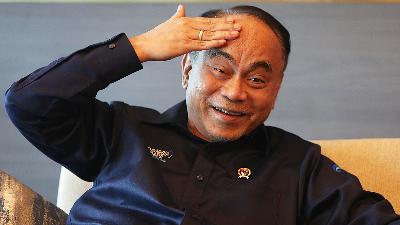
Communication and Informatics Minister Budi Arie explains the cyberattack on the Temporary National Data Center. He dismisses allegations of negligence.

Infinite Earth responds regarding the revocation of Rimba Raya Conservation’s ecosystem restoration permit.

There will be a wave of layoffs at Tokopedia as a result of inefficient practices. This is the result of government policy rife with conflicts of interest.
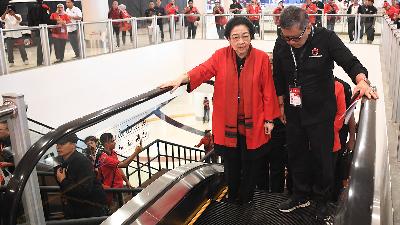
The PDI-P is preparing to replace Hasto Kristiyanto after he was questioned by the KPK in the Harun Masiku case. They are wary of the Palace’s interference.
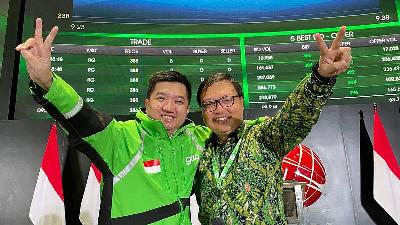
The founders of GoTo and Tokopedia sold their shares. New investors now have control of ownership.

Tokopedia made significant cuts in its workforce following its business consolidation with TikTok. A consequence of inefficient business operation.

Muhammadiyah’s business networks cover various sectors, from education to financial services. It seeks to create a closed economic ecosystem.
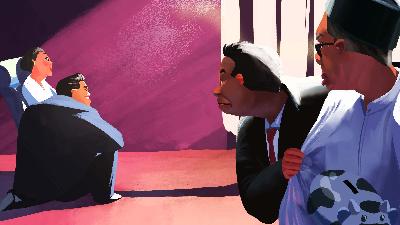
Muhammadiyah withdrew trillions of rupiah from Bank Syariah Indonesia. It was the accumulation of various problems, from operational matters to appointment of commissioners.
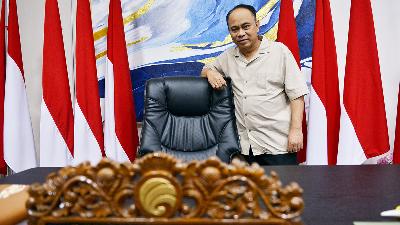
Communication and Informatics Minister Budi Arie Setiadi talks about the polemic over the planned revision of the Broadcasting Law and the Starlink Internet service.
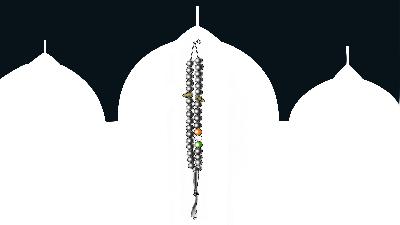
Narendra Modi is likely to serve his third term as the Prime Minister of India. His campaigns are based on populism and religion.
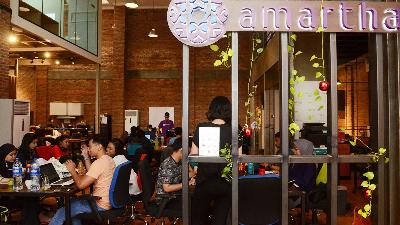
The fintech lending business is increasingly losing steam. Returns continue to decline while fund owners are opting for other investment portfolios.
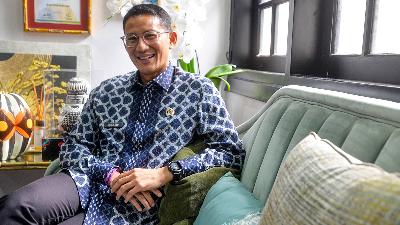
Tourism and Creative Economy Minister Sandiaga Salahuddin Uno assures that the tourism fee will not be imposed on plane tickets.
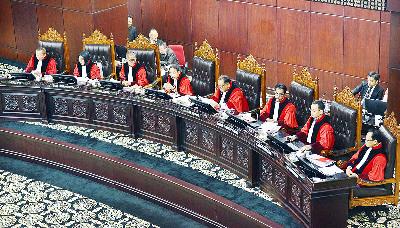
The Constitutional Court rejected lawsuits disputing the results of the 2024 presidential election. The option of disqualifying Gibran was discussed in a meeting of the judges.
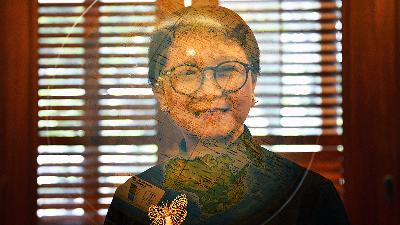
Foreign Affairs Minister Retno Marsudi explains the Gaza war and the Iran-Israel conflict with its impact on Indonesia’s economy.
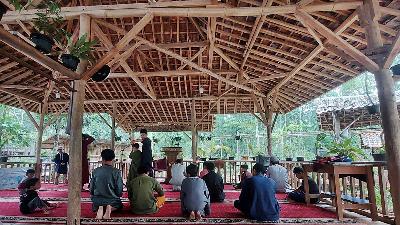
Islamic boarding schools (pesantren) cannot be closed even if they do not have a license from the government. There is no protection from the Ministry of Religious Affairs if legal problems arise.
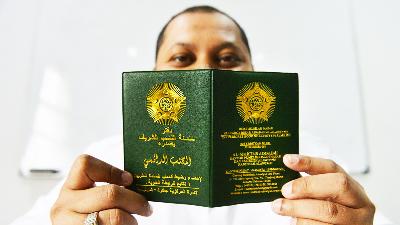
The Rabithah Alawiyah organization is in charge of recording and preserving the line of descent of the Alawiyyin in Indonesia. Seven books from Yemen serve as their guide.
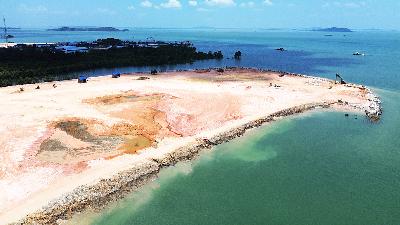
Several companies are applying for permits to utilize sediment, including sea sand. Large corporations use landfills for land reclamation areas.

Indigenous people are taking legal action against the President and the DPR for delaying deliberations of a bill. It has taken second place to the interests of investors.
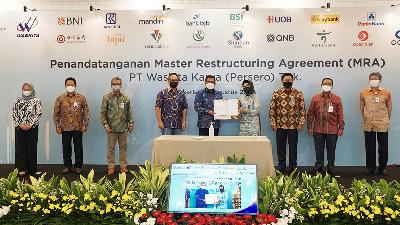
State banks stop distributing loans to state construction companies. Government assignment projects are burdening banks.
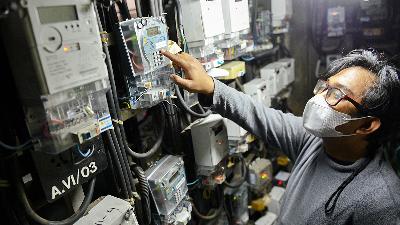
The government opens the option of switching energy subsidies for the free lunch program. This threatens poor households.

The government issues a regulation to develop the game industry. There will be a special funding agency.
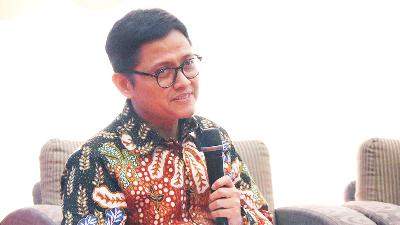
Discussions of the Asset Recovery Draft Law is stagnating in the DPR. It is key to preventing money laundering.

TikTok Shop’s acquisition of Tokopedia changes the Indonesian business map. It is not clear how small and medium enterprises will be protected.
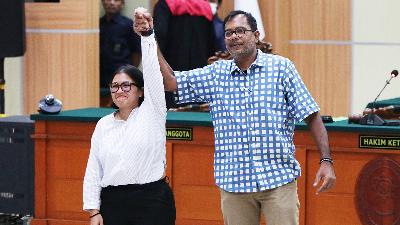
The prosecutor persists in filing a cassation against the acquittal of Haris Azhar and Fatia Maulidiyanti. It is a threat to the freedom of expression.

GoTo CEO Patrick Waluyo reveals the story behind the selling of Tokopedia shares to TikTok. How much profit did GoTo get?
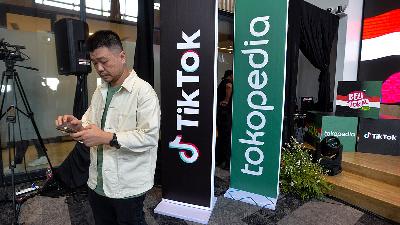
The integration of TikTok Shop with Tokopedia will reinforce GoTo’s business. Indonesia’s e-commerce competition landscape is changing.
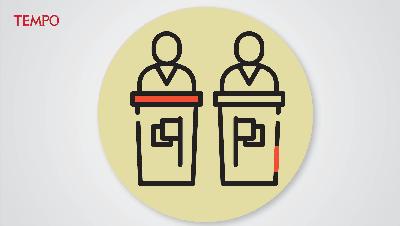
The presidential and vice-presidential candidates are relying entirely on gimmicks to exploit the emotions of the people. This moves the campaign away from substantive discussions.

Do the presidential candidates succeed in attracting young voters with social media gimmicks?
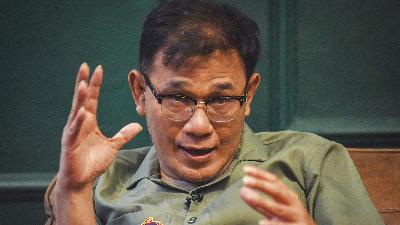
Budiman Sudjatmiko persuades other activists to support Prabowo Subianto. He claims he is not motivated by money.
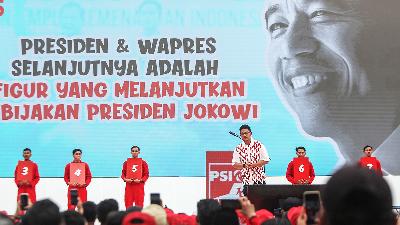
How does the Indonesian Solidarity Party get its funding? Is the aid from conglomerate bosses like Djarum’s owner true?

Presidential Chief of Staff Moeldoko is writing regarding his alleged interference in electric vehicle policy over Wuling’s SNI certification.

Post-Firli Bahuri, the Corruption Eradication Commission (KPK) is still walking backward toward its grave. A radical reform is needed.

The presidential candidates’ campaign teams are an illustration of the type of government they would form if elected. Businesspeople have a central role.
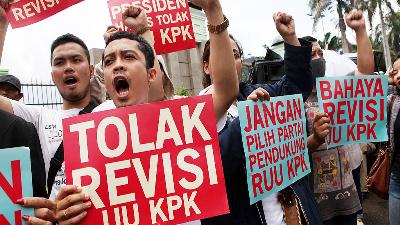
The Corruption Eradication Commission is no longer independent ever since it became part of the executive body. The fruit of the revised KPK Law.
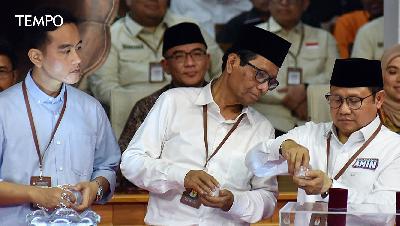
In Indonesia, presidential candidate debates are planned as bogus performances. There is no in-depth discussion of the issues.

Yet again, a member of the Supreme Audit Agency is involved in corruption. The system for selecting these state auditors is very poor.
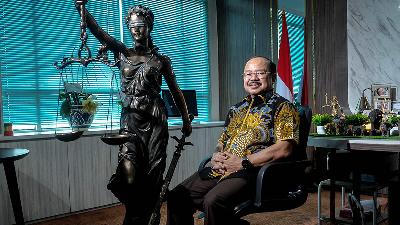
Judicial Commission Chairman Amzulian Rifai explains the boundaries of his authority in dealing with judges, and the Judicial Commission Bill.
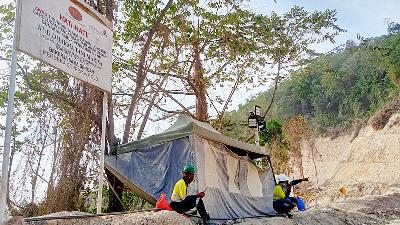
Sandiaga Uno and Garibaldi Thohir’s company is in conflict with local miners. The amount of compensation is considered inadequate.
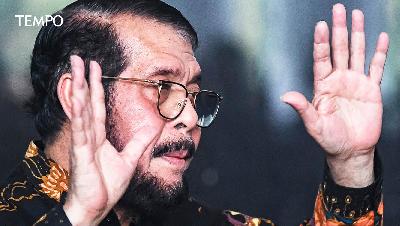
Having no democratic legitimacy, Gibran Rakabuming Raka must withdraw his candidacy for the vice-presidency.
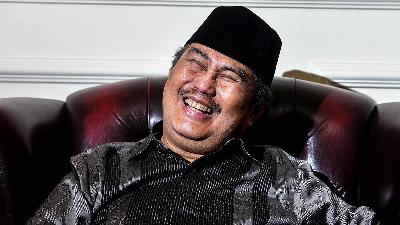
Tempo's special interview with MKMK Chairman Jimly Asshiddiqie regarding the dismissal of Anwar Usman as Chief Justice of the Constitutional Court.
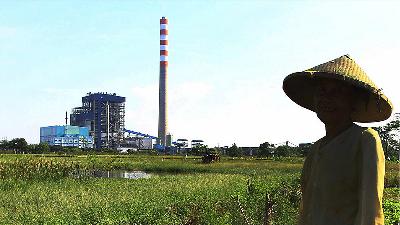
The program to put coal-fired power plants (PLTU) into early retirement is hampered by funding problems. As grants are stuck, the state budget must be disbursed.

Nepotism is the close relative of corruption and dictatorship. The Indonesian Independence Proclamation places nepotism as a threat to independence.
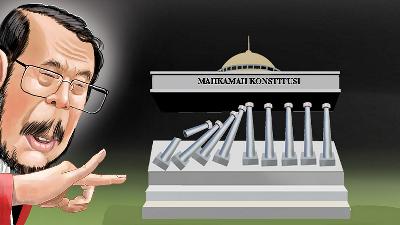
Constitutional Court Chief Justice Anwar Usman is reportedly maneuvering to lower the minimum age limit for presidential and vice-presidential candidates, paving the way for Gibran.
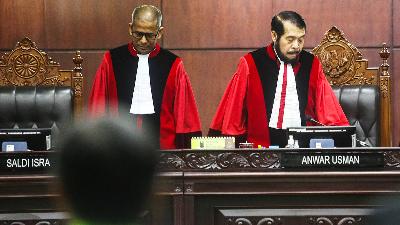
The Constitutional Court reportedly already made a decision in favor of a lawsuit regarding the minimum age requirement for presidential and vice-presidential candidates. The issue is rife with conflicts of interest.

Carbon trading is simply a way to mitigate climate change. The main aims are the energy transition and environmental protection.
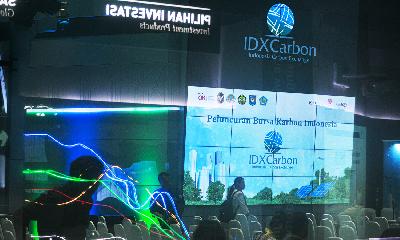
The Indonesian Stock Exchange established four carbon trading mechanisms. There were 27 transactions in three schemes in the initial sale.

Presidential candidates’ supporters are creating unfavorable atmosphere in the build-up to the 2024 general elections with them more inclined to speak about rivals’ weaknesses than promoting their champions’ profiles.
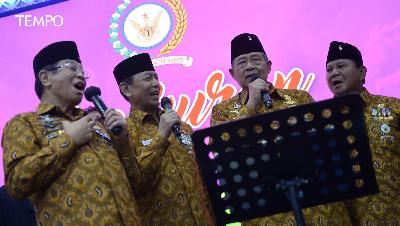
The 2024 presidential candidates are competing to garner support from retired generals. This perpetuates the militaristic nature of Indonesian politics.

The plan from the OJK to introduce carbon units as securities could lead to problems. Carbon trading no longer means a reduction in emissions.

The three soldiers who allegedly killed a civilian should be tried in a criminal court. The Military Courts Law needs to be revised.
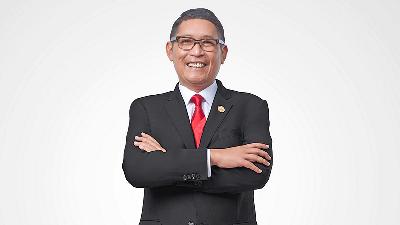
The OJK regulates carbon exchanges as a securities trading platform. How will the OJK prevent greenwashing in the carbon exchange?

The news in our media is problematic. Why is that?
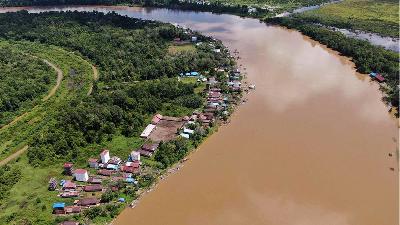
Voluntary carbon trading has stopped since 2021, due to upside down policies.
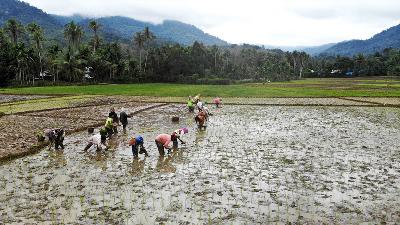
Individuals and companies are already implementing carbon trading in the voluntary market. But no price standard has been set.
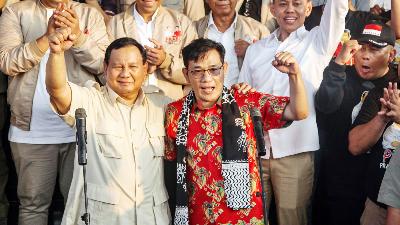
News summary, from the dismissal on Budiman Sudjatmiko to Food Estate.
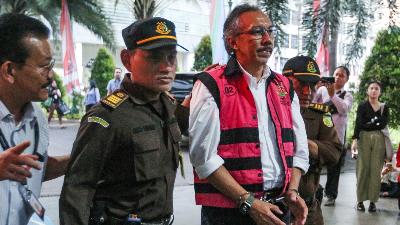
Former Director-General of Mineral and Coal, Ridwan Djamaluddin, is named as suspect in the Mandiodo Block nickel corruption case.
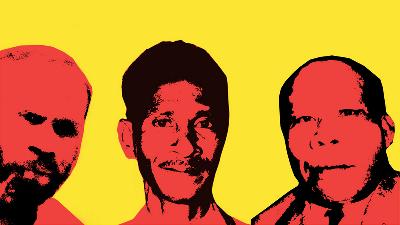
Why did the prominent figures from Papua fail to bring the Papuans to support the Republic of Indonesia?
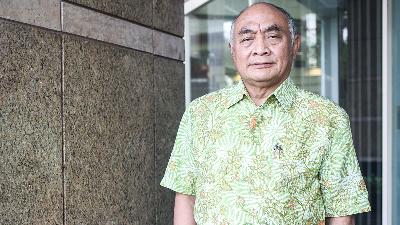
The government faces difficulties accommodating kidney donors and recipients. The need for kidney donors is high, but the supply is very limited.
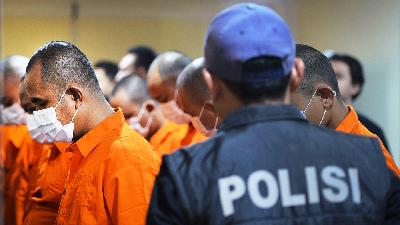
The police exposes Indonesian kidney trafficking network in Cambodia. The victims are enticed through social media.
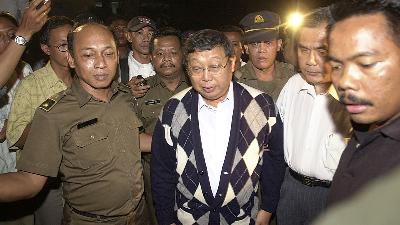
The KPK continues to find steep roads and dead ends in investigating the BLBI case implicated Sjamsul Nursalim and his wife. Everything stops as Syafruddin Arsyad Temenggung walks free.
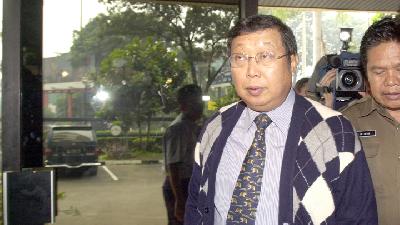
The KPK named Sjamsul Nursalim and his wife suspects in a case involving the issuance of release and discharge letter of BLBI bailout funds. They will likely stand trial in absentia.
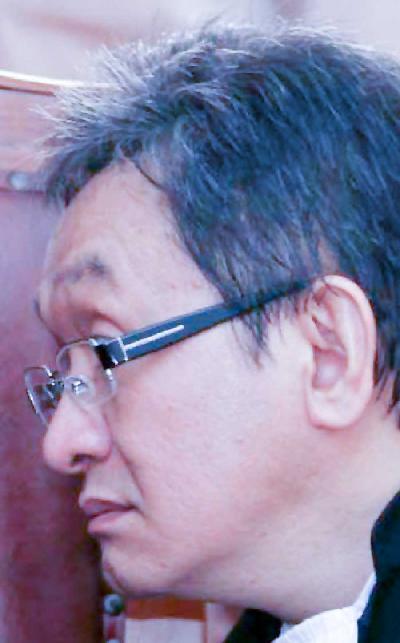
In the charges against former Head of the Indonesian Bank Restructuring Agency (IBRA) Syafruddin Arsyad Temenggung, Sjamsul Nursalim is mentioned as having also committed the crimes as charged by the prosecution.

I received a text message on my cellular phone on Thursday last week, that former Judge Benjamin Mangkoedilaga had passed away. I was silent for a moment, remembering a man I had known for more than 30 years. He was a simple and honest man. He was not just a judge, but also a teacher, a social activist and a legal consultant.

Barely four months into his new job, the newly appointed CEO of Freeport Indonesia, Maroef Sjamsoeddin has had to face the challenge of negotiating his company's Contract of Work (CoW), the pressure to build a smelter in Papua and protesters blocking the road to the Grasberg mine. How the government deals with Freeport, which has operated in the country for more than four decades, will be keenly followed by foreign investors. Maroef recently spoke to Tempo English reporters Yuli Ismartono and Amanda Siddharta at his office last week.

After he was appointed as CEO of Freeport Indonesia, the Papua-based mining company, Maroef Sjamsuddin immediately faced a host of operational problems. What was his strategy to run this giant company and how would he do it? The following is a compilation of statements by and interviews with Maroef from a conference he gave on January 22, and at the hearing with the House of Representatives' (DPR) Commission VII, last week.

The attorney general has stopped investigating conglomerate boss Sjamsul Nursalim.

To find the identity of Tjamboek Berdoeri, Benedict Anderson went through the streets of Malang, talked to senior citizens and studied old newspapers.

After managing the assets of Sjamsul Nursalim, IBRA will soon sell them off. Will he have the opportunity to buy them back and also obtain his R&D papers?

An agreement made in November sets Sjamsul Nursalim free from any legal action. At that time, however, a document was discovered that revealed his total debts were not Rp28.4 trillion but in fact Rp48.2 trillion.

The government's legal assistance team will very soon complete its work. Legal action is strongly recommended against big-fish debtor Sjamsul Nursalim. The verdict, as far as he is concerned, is that he has broken all his promises.

SJAFRIE Sjamsoeddin hasn't changed at all. He looks just as handsome as he did when he appeared in photos and on television when he was still commander of the Greater Jakarta Military Area Command (Kodam), from September 1997 to June 1998. His attiregreen army uniform with polished gold insigniagives him a neat appearance. He appears calm and relaxed, and smiles often. The same number of stars is pinned on his shoulders as it was five years ago. Two starsno more, no lessindicating the rank of major general.

A number of IBRA staff handling Sjamsul Nursalim have been transferred elsewhere. Is this move to ensure the request of the Gajah Tunggal boss for debt relief is approved?

Police act excessively in handling the demonstrations nationwide in support of the Constitutional Court decision. Where are the President and Vice President?

The structure of Indonesian democracy is weakening because its foundations are being undermined. A Javanese word to describe the situation is nglimpe, which is to deceive secretly.
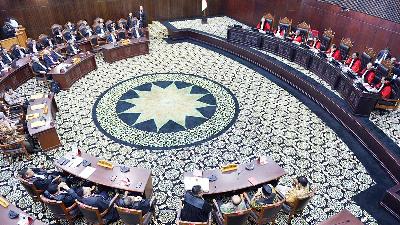
The latest revision to the Constitutional Court Law severely restricts the independence of Constitutional Court judges. Perpetuating authoritarian power.
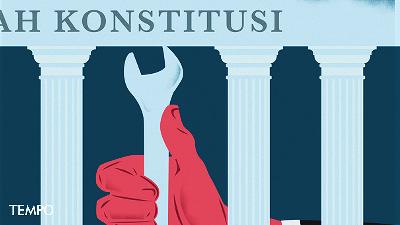
The government and House of Representatives agreed to revise the Constitutional Court law to weaken the institution. There are indications of attempts to protect the Prabowo-Gibran government.
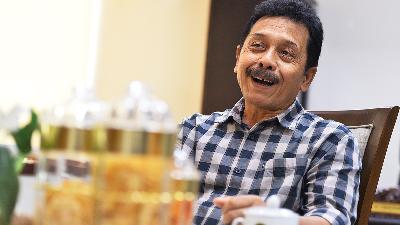
Constitutional Court’s Ethics Council Chair I Dewa Gede Palguna on his stance rejecting a revision to the Constitutional Court Law.
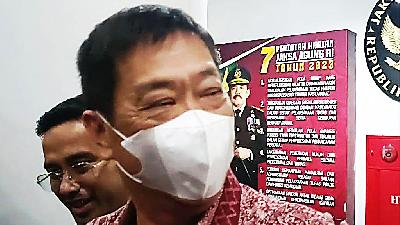
Robert Bonosusatya denies involvement in the Bangka Belitung tin corruption case. He often discusses tin business with other entrepreneurs.

Illegal tin mining is rampant in the waters of Bangka Belitung. The environmental damage is much greater than investigators estimated.

The situation in Gaza is getting worse for newborn babies and mothers giving birth.
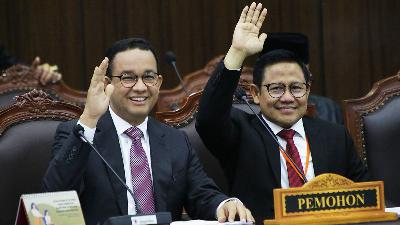
Anies and Ganjar can only rely on a lawsuit to the Constitutional Court because the route of the right of inquiry at the DPR is deadlocked. They are focusing on election interference by President Jokowi.
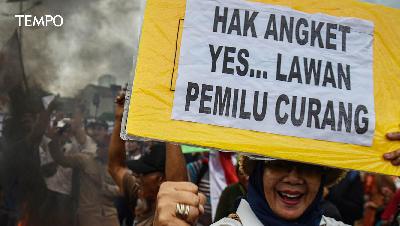
Anies and Ganjar, along with their campaign teams, are asking the Constitutional Court to annul the victory of Prabowo and Gibran. This is an opportunity to restore the Court’s honor.

Sihol Situngkir denies committing human trafficking in the ferienjob program. The employment agency obtained a 100-euro commission for every student.

KPAI Chair Ai Maryati Solihah on bullying cases in educational institutions such as the recent incidents at the Binus High School and an Islamic boarding school.
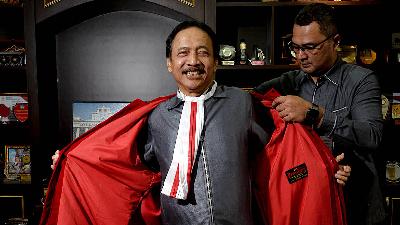
New Constitutional Court Chief Justice explains the efforts he is making to regain public trust of the Court following the Anwar Usman fiasco.

The violence in Bitung must not be allowed to spread. In the run up to the 2024 elections, there is a risk of horizontal conflicts breaking out.
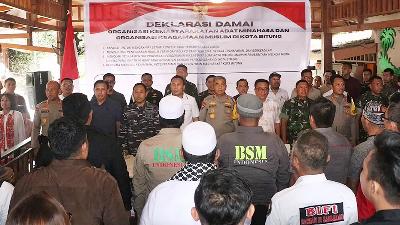
Police and authorities are setting up security strategies following clashes in Bitung. It has the potential to become a religious conflict.
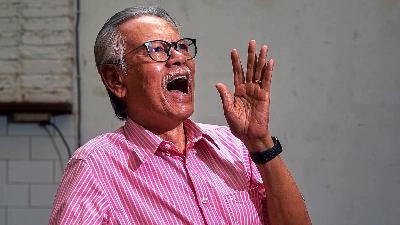
Erry Riyana Hardjapamekas had a meeting with the President before the Constitutional Court issued a ruling that allowed Gibran Rakabuming Raka to move forward as a vice presidential candidate.

Policy breakthroughs are needed to restore public trust in the Constitutional Court.

Anwar Usman breached the code of ethics. The Constitutional Court’s Ethics Council should dishonorably discharge him.
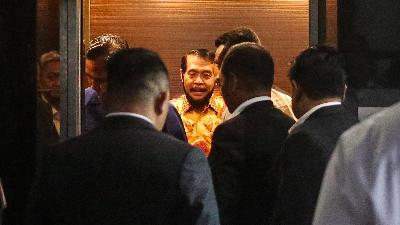
The Constitutional Court’s Ethics Council (MKMK) scrutinizes the role played by Constitutional Court Chief Justice Anwar Usman. The formation of the MKMK is being stalled.
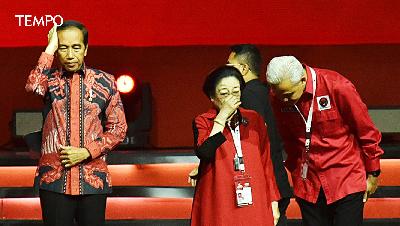
The Constitutional Court is handling the presidential-vice presidential candidates' age limit judicial review. Jokowi family's conflict of interest is thick.

Transpersonal psychology is a new branch of psychology that incorporates religion and spirituality.

There have been many attempts to extend the terms of office of public officials during Jokowi’s second administration. These are at odds with constitutional principles.

What lies within the rise of spiritual secularism?
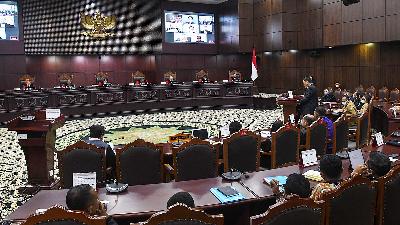
Weekly news summary, from widely voiced criticism aimed at the Constitutional Court to Jokowi’s move to reopen sea sand export that stirs public ire.

The Asset Forfeiture Law is important. It is dangerous if politics and the legal system are controlled by oligarchs.

The sanctions imposed on Guntur Hamzah and the selection of the Constitutional Court chief justice damage the authority of the institution. This is the unfortunate collapse of one of the products of the 1998 Reformasi.
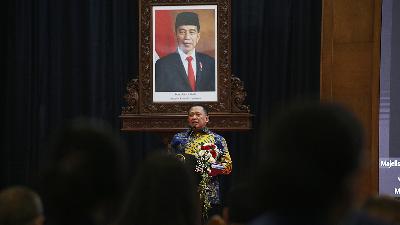
The plan to extend the President’s tenure is predicted to cause difficult deliberations on the amendment of the 1945 Constitution. There is concern that political interests may be at play.

Victims of sexual violence have the right to restitution in damages. Its mechanism is unclear.

The Constitutional Court ruled that the Job Creation Law is unconstitutional but ‘constitutional’. The ruling is riddled with compromises and intervention.
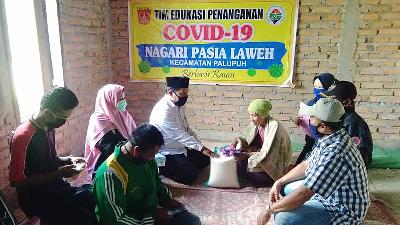
The Constitutional Court anointed Pasie Laweh a constitutional nagari. This is the result of innovative actions towards respecting people’s health and economic rights, and the right of application of customary law.
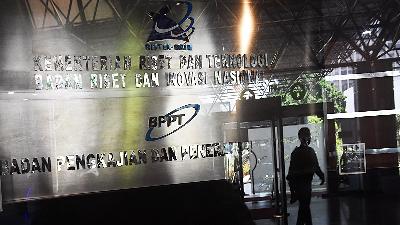
The PDI-P is pushing the National Research and Innovation Agency to become an autonomous institution. Megawati Soekarnoputri could potentially be appointed to chair its steering committee.
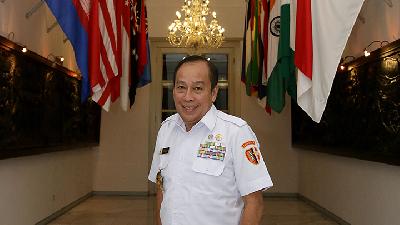
The army’s role in the recent sweeping operation to bring down the banners bearing Islam Defenders’ Front leader Muhammad Rizieq Shihab around Jakarta unsettled Agus Widjojo, governor of National Defense Institute (Lemhannas).
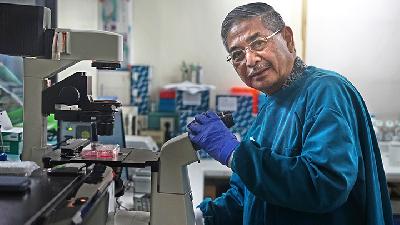
Ever since President Joko Widodo mentioned the need for decentralized coronavirus testing, Eijkman Molecular Biology Institute’s phone lines have not stopped ringing.

The domestic furniture industry is growing, both domestically and in exports. The gaps in the domestic market is an opportunity for local players. Design innovation and environmental standards need to be tightened in order to improve competitiveness.
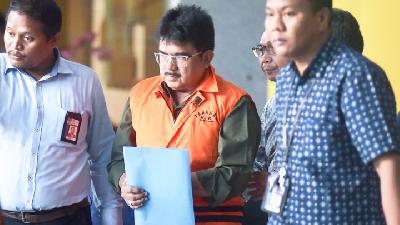
The Corruption Eradication Commission is investigating a bribery case related to tax restitution granted to Wahana Auto Ekamarga. A top executive from the parent company in Singapore is suspected to be involved.
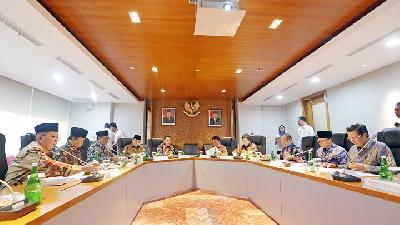
The proposed amendment to the constitution is not only about the state’s direction. Parties and senators have another agenda.
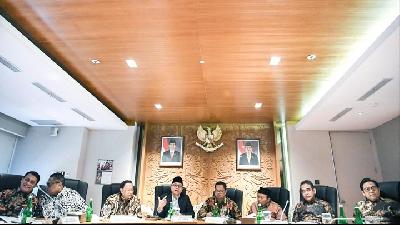
The PDI-P pushes for the amendment of the 1945 Constitution, creating holes to change major clauses including a president’s term in office.

ON Sunday, May 26, 2019, our family visited Situ Gunung, a tourist spot in Kadudampit subdistrict, Sukabumi Regency, West Java, about 10 kilometers from the town of Sukabumi.

VERY few people know of Nahum Situmorang (1908-1969). A dire lack of scholarly research and literature on the songwriter is one of the reasons. Yet Nahum Situmorang is a legendary song composer. In his lifetime, he wrote around 200 songs, most of which were composed at lapo tuak, or roadside palm wine drinking stalls. To this day in Medan, his songs are still being sung in roadside stalls, though not many know who wrote them. The most popularly performed Batak songs were written by someone who is now practically forgotten. In 1928, one of Nahum’s songs won second place in the competition to compose Indonesia’s national anthem. Alas, Nahum’s entry is now lost to the ages for not being filed and noted. To honor his achievements, a community of North Sumatran musician-artists celebrated Nahum Situmorang’s 110th anniversary at the Taman Mini Indonesia Indah, Jakarta, in mid-February.

When he first arrived at his new office on the pinnaclethe 15th floorof the Constitutional Court building in Jalan Medan Merdeka Barat, Jakarta, two weeks ago

Saldi Isra's life has changed drastically since April 11, the day President Joko Widodo appointed him as a Constitutional Court (MK) Justice. He had to move to Jakarta, give up his career as a lecturer of the Andalas University, Padang, which he held for the past 22 years, abstain from writing in the media and withdraw from many of his social circles. "It's been a 180-degree turn," Saldi said three weeks ago during a ride, as his car, a black Toyota Camry guided by a motorcycle escort, waded through Jakarta's notorious evening traffic.

The police must nail the brains behind case files theft at the Constitutional Court. The staff at the Court must be carefully screened and monitored.

The plan of Constitutional Court Chief Justice Arief Hidayat, 61, to take some days off in his hometown of Semarang three weeks ago, was not to be. When he landed at Ahmad Yani Airport that Thursday morning, he was all set to go teach at the 17 Agustus 1945 University in the city. But a telephone call from Jakarta made him turn around and fly right back to Jakarta. But not before a journalist gave him the shock of his life, when he was asked to comment on a news report that the Corruption Eradication Commission (KPK) had arrested one of his judges.
That evening, back in Jakarta, Arief received confirmation that Patrialis Akbar, one of the Constitutional Court judges, had indeed been arrested. The charge against Patrialis was bribery involving a judicial review of Law No. 41/2014 on Livestock and Animal Health. Patrialis, who was justice and human rights minister from 2009 to 2011, was also accused of leaking the results of the judicial review, to Basuki Hariman, a beef trader who is suspected of bribing the judge. "Here we go again, another blunder," said Arief. This is the second time Arief has gone through such an incident. The first case involved Akil Mochtar, his predecessor, who was accused of accepting a bribe over a dispute on the results of the regional chief executives' elections in 2013.

After he was questioned for 15 hours, Patrialis Akbar, a judge of the Constitutional Court, did not immediately return to his cell at the Corruption Eradication Commission (KPK) detention facility. It was already 1:00am on Friday, last week. Wearing a vest given to detainees, Patrialis sat ruminating for some time, on the porch of the detention facility. He occasionally spoke to KPK officers escorting him from the interrogation room to his cell.
"This is a very tough test," said Patrialis, a justice and human rights minister during the presidency of Susilo Bambang Yudhoyono. Linda Trianita from Tempo had a chance to ask Patrialis a few questions.

After he was questioned for 15 hours, Patrialis Akbar, a judge of the Constitutional Court, did not immediately return to his cell at the Corruption Eradication Commission (KPK) detention facility. It was already 1:00am on Friday, last week. Wearing a vest given to detainees, Patrialis sat ruminating for some time, on the porch of the detention facility. He occasionally spoke to KPK officers escorting him from the interrogation room to his cell.
"This is a very tough test," said Patrialis, a justice and human rights minister during the presidency of Susilo Bambang Yudhoyono. Linda Trianita from Tempo had a chance to ask Patrialis a few questions.

Nahdlatul Ulama (NU) Chairman Said Aqil Siroj was one of the first people President Joko Widodo reached out to following the November 4 mass demonstration. The President conveyed his gratitude to the chairman of the country's largest Islamic mass organization, for his calming statements during the protests against Jakarta Governor Basuki Tjahaja Purnama, for his allegedly blasphemous statements. In fact, just before the protests, the NU had indeed urged all of its memberstotaling more than 40 million peopleto help placate the tension by not being provoked.
In other words, Said and other NU leaders discouraged their members from joining the protests. "In Islam, there is no such thing as a demonstration," explained Said. However, he was critical of the government, saying it was slow in building communications with Islamic mass organizations. Said, 63, said the government should not communicate only when there are conflicts. "I am very happy to be approached and to have my existence acknowledged," Said commented. However, he regretted the President's statement that there were politicians who piggy-backed on the demonstrators during the November 4 protests, for their own particular purposes.

IT was dusk, the right time for Saiful Alam to venture into the forest. The 36-year-old man is a tour guide in West Belitung, tasked with helping tourists find tarsius (tarsius bancanus saltator)-a small, beady-eyed primate that comes out at night.
Guided by a headlamp, on Wednesday two weeks ago, he led two students from the Bandung Institute of Technology into the protected forests of Gunung Tajam.

Since it was created in 1817, the Bogor Botanical Garden has succeeded in conserving 60 percent of rare plant species, including endemic ones, 111 of which the International Union for the Conservation of Nature have classified as on the 'red list'. The Indonesian Institute of Sciences (LIPI) is currently conducting a conservation program in four national botanical gardens. They are the gardens in Bogor and Cibodas in West Java, Purwodadi in Central Java, and in Bali. Lately, LIPI has set out to create more than 30 botanical gardens in the regions, among them in North Sumatra, South Sulawesi, West Kalimantan, Riau, and Papua.
According to Sri Rahayu, botanical gardens in the regions were established as an effort to cultivate endemic plants in their original habitat. This is important because some plants are difficult to grow outside of their habitat.

Indonesia is a vast archipelago with bountiful resources. This is the reason why Dwi Susilaningsih has spent more than 20 years researching marine microbes that can potentially be converted into energy. She lamented, however, that Indonesians were slow to take advantage of such sources as the sun, wind or sea currents as renewable energy sources. As of today, only five percent of the total energy produced in Indonesia is renewable.
"And those renewable energy sources are small scale," said Dwi, head of the Infrastructure Research Center at the Biotech Division of the Indonesian Institute of Science (LIPI). Not surprisingly, she hopes the government will put more effort into producing energy from renewable resources, instead of from fossil fuels. This would be in line with the commitment made by more than 180 countries, including Indonesia, to reduce global emission after the UNFCCC-COP21 in Paris last year.

Reducing the Burden
Some communities on the island of Alor in East Nusa Tenggara Province have cut down on the cost of expensive customary rituals. The resulting savings means more children are staying in school and going to university.

An Alternative to Rice
Women's groups in Bangka Regency produce and market a healthy rice substitute from cassava known as beras aruk. It is healthier than white rice and can even help those with diabetes control their blood sugar.

Last week's attack in the middle of Jakarta should be seen as a wakeup call for the authorities. We may have been lulled by the six-year hiatus of bombings that were a feature between 2000 and 2009. In reality, however, the signs were all there to see. The comings and goings of radical Islamic elements in and out of Syria, their increasingly assertive campaigns on social media and most recently the discovery of a plot to carry out attacks on Christmas and New Year. The fact that only two fatalities resulted from last week's terror attack should also not be a reason for complacence. Responding to written questions posed by Tempo English, Sidney Jones, executive director of the Institute for Policy Analysis of Conflict and longtime student of radical Islam in the region, believes that, "We could be in for a period of more intensive terrorist activity."

Who knows what was in the mind of Constitutional Court Chief Justice Arief Hidayat when he asked the police to investigate allegations of falsification of signatures by advocates working in the Indonesian Legal Aid Foundation (YLBHI). After all, the hearing to review the Police Law and the Road Transport and Public Transport Law that began two weeks ago was already underway.
It is unlikely that Arief would have misunderstood the police and the YLBHI were on opposite sides of the dispute. Asking the police to check the authenticity of signatures of the judicial review plaintiffs showed bias, something that should be far from the minds or the actions of fair-minded judges.

Gusti Raden Mas (Crown Prince) Dorodjatun had a lot in his mind when he heard the whispers. Late one afternoon in February 1940, while he was resting in Yogyakarta Palace Gedhong Jene (Yellow House), the prince's drowsiness overcame him and he nodded off. Half asleep, he grew conscious of a presence who delivered this wisik (spiritual inspiration) message: "Wis, thole, tekena wae. Landa bakal lunga saka bumi kene (Everything will be okay son, just sign. The Dutch will soon leave our land)."

ILLEGAL logging and forest fires have became daily news in Indonesia. It causes untold damage to the environment, and our forests continue to disappear. "There must be a drastic change of mindset to overcome this problem," said Yanto Santosa, a lecturer of Forest Resources Conservation and Ecotourism at the Bogor Institute of Agriculture (IPB). Yanto, who is a graduate of the Languedoc Science and Technical University in France, is also the initiator of unique ways to conduct forest conservation, which requires people's participation. His expertise has been used in a number of UN Development Fund projects on climate change. Tempo English reporter Amanda Siddharta interviewed him recently at IPB. Excerpts:

ILLEGAL logging and forest fires have became daily news in Indonesia. It causes untold damage to the environment, and our forests continue to disappear. "There must be a drastic change of mindset to overcome this problem," said Yanto Santosa, a lecturer of Forest Resources Conservation and Ecotourism at the Bogor Institute of Agriculture (IPB). Yanto, who is a graduate of the Languedoc Science and Technical University in France, is also the initiator of unique ways to conduct forest conservation, which requires people's participation. His expertise has been used in a number of UN Development Fund projects on climate change. Tempo English reporter Amanda Siddharta interviewed him recently at IPB. Excerpts:

Clean and potable water do not come easily to Indonesians. So far, according to the Mineral and Natural Resources Ministry, only 68.9 percent of the population have access to clean water while only 20 percent get potable water. Given the government's inability to provide water supply, the poor are usually the worst off. "To meet basic needs, the government is able to provide the poor with rice, but with water? No such program exists," Roh Santoso Budi Waspodo, 52, who teaches hydrology at the Bogor Institute of Agriculture's Faculty of Civil Engineering and Environment told Tempo English.
Roh is quite familiar with problems relating to clean water supply. In the 2000s, he initiated a clean water project in Banten. He assisted the Public Works Ministry to supply potable water in coastal areas and small islands from 2004 to 2005. Besides teaching, one of his activities is to map out water sources for a private company. According to Roh, there are alternative ways to access clean and potable water. "We should not be dependent on the state-run water supply company," he urged. Contributor Lina Wulandari interviewed Roh two weeks ago.

Measuring the social and economic development of a country has been done countless times, by means of various accepted formulas. But only in the last decade has the understanding of good governance as the key to effective development been seriously and intensively studied and researched. Based on 40 data sources, and produced by 30 organizations worldwide, since 2002, the Worldwide Governance Indicators have been applied to 200 countries to measure the country's level of governance. This has provided watchdog groups with the necessary tools to monitor policy and initiate reforms, which also helps to immeasurably assess perceptions of corruption among businesses, public officials and politicians. Much of the work can be attributed to Dr. Daniel Kaufmann when the studies were initially conducted at the World Bank Institute, where he worked. For the past two years, Kaufmann has headed the Natural Resources Governance Institute (NRGI), which pioneered the Resource Governance Index to measure the transparency levels of countries in managing their extractive industry. Kaufmann was in Indonesia recently to meet with public figures in government, the business community and members of the local civil society, and to be the keynote speaker at a panel discussion on 'The Impact of Low Oil Prices on Indonesia's Reform Agenda' which was co-organized by the NRGI and Tempo English magazine. He was recently interviewed by journalists Hermien Y Kleden, Sadika Hamid, Gusthida Budiartie dan Edward Stephens from the Tempo Media Group. Excerpts:

Power engulfs people with solitude, and sometimes curses them with loneliness. This can happen to leaders anywhere, but only one novel has managed to depict it: One Hundred Years of Solitude, Gabriel Garcia Marquez's famous work.

RENNI Suhardi, 51, a lecturer of microbiology and biodiversity technology at the Bandung Institute of Technology (ITB) has concluded, after years of research and field work that biodiversity in Indonesia can only be conserved if it benefits society. "When I collected data on types of fungus, for example, I also tried to find which type had more economic value," said Renni.

It has been 30 years since Sudradjat 'fell in love' with coconuts. The thesis and dissertation of this lecturer of Agronomy and Horiculture at the Bogor Institute of Agriculture (IPB) were all about coconuts. He claimed to have been attracted to the philosophy of the cocounut tree-also known as 'the tree of life'. The coconut can grow anywhere and it has become, "the symbol of beauty in the tropics," said Sudradjat.

FOR almost a year, Hamdan Zoelva has only managed to sleep five hours a day. As the chief justice of the Constitutional Court he has had to bear the consequences of his predecessor Akil Mochtar's actions. Last year Akil was arrested, tried and sentenced to jail by the Corruption Eradication Commission (KPK). "Many people don't trust the Court anymore," said 52-year-old Hamdan.
Akil was guilty of accepting bribes from regional chief executives whose elections were in dispute. He was arrested in early October 2013, in the process of receiving money from Hambit Bintih, district chief of Gunung Emas. The case shook the Court. When Hamdan took over, public trust in the judiciary was at its lowest.

CONSTITUTIONAL Court Chief Justice Hamdan Zoelva turned red and his voice rose one decibel higher as he presided over the lawsuit submitted by the Jambi-based National Democrat Party. Two of the three witnesses had given conflicting information. When they were questioned further, they had no valid data. "It was very clear they were making it all up," Hamdan told Tempo.
The inaccurate testimony, according to Hamdan, was one among many problems in the court proceedings looking into disputes arising out of the recent legislative election. Some 700 cases submitted by political parties and legislative candidates were pending, with only three weeks to go before the deadline on June 30. "This week we will evaluate the cases so that a week before the deadline, all is in place."

Lawmakers elected two constitutional justices from four candidates proposed by a team of experts. There was no time to scrutinize their histories.

Public confidence in the Constitutional Court has collapsed. Government Decree No. 1/2013 is an attempt to restore it.

The tradition of ritual-enacting to pay respects to their ancestor remains very much a part of the Tanah Karo people in North Sumatra province, as demonstrated by the ngampeken tulan-tulan ritualplacing the remains of an ancestor to a better placewhich took place three weeks ago at the Bintang Meriah village. This particular ceremony involved a procession to place the skull of King Senina Lingga of Tanah Karo, who died 400 years ago, in a special place, after the skull had been put in safekeeping elsewehere since 1946, when Tanah Karo experienced certain after-war turmoil. Three weeks ago, Tempo correspondent Soetana Monang Hasibuan witnessed this unique ritual.

Meditation expert Suprapto Suryodarmo recently produced an event which brought together the worlds of architecture, Buddhist spirituality and art in various performances at Borobodur Temple.

The Constitutional Court has rejected a lawsuit against the election of Banten's governor and deputy governor. Ratu Atut and Rano Karno are safe for the time being.

The DPR and the government have agreed to reduce the authority of the Constitutional Court. Discussions on revising the law must not take place behind closed doors.

The Singapore government is holding a large exhibition of Tang Dynasty treasures taken from a shipwreck in Bangka Belitung waters in 1998. At the time Indonesia received very little compensation.

Constitutional Court Chief Justice Mahfud Md. and judge Akil Mochtar have reported lawyer Refly Harun to the KPK. Now Refly, who was originally commissioned by Mahfud to investigate reports of corruption in his court, finds himself on the defensive.

The Situ Gintung tragedy spreads fears among residents living close to manmade lakes in Jakarta.

Empty lots around Situ Gintung are becoming scarce. This could have been a factor which contributed to the collapse of the dam.

The Constitutional Court considers provisions on defamation constitutional. They can be used to stifle freedom of expression.

The Constitutional Court refused to revoke possible criminal charges for defamation cases. Freedom of expression is under threat.

The young Soemantri came from a remote spot in East Java to make history for himself in the middle of the last century. He was involved in the heated debates that took place in the Constitutional Assembly.
These days, as an intellectual, along with several colleagues he is still endeavoring to put the Constitution into order so that it can become the soul of the nation in coming centuries.
Speaking with Widiarsi Agustina from Tempo, he spoke about how different the political disagreements were during the era of the Constitutional Assembly compared with the current era of reform. Throughout the discussion with Tempo, not once did he have to refer to notes to recall dates or names. He is far from senile. “The secret lies in the three b’s: prayer (berzikir), thought (berpikir) and love (bercinta),” he said.

The Constitutional Court should approve the disbanding of the Film Censorship Institute, which is now outdated. Replace it with a ratings institute, a suggestion that has nothing to do with liberalism.

Jailing a columnist is a serous breach of the Constitution. Articles on defamation in the Criminal Code must be reviewed.

The Palace is finally going along with plans to amend the 1945 Constitution. The motivation could be the strengthening of the government’s executive branch.

There are widespread rumors that former State Secretary Yusril Ihza Mahendra will be nominated as a candidate for the head of the Constitutional Court. Is the President testing the public’s reaction?

Aidit, who came from a well-respected family, first developed his communist leanings when he witnessed laborers at a tin mining company in Belitung.

Sukarno eventually dissolved the Constitutional Assembly, but not before it produced many quality amendments.

The Human Trafficking Law imposes heavier punishments on those proven to have ordered others to prostitute themselves. Will it work in Indramayu?

Although the golden age is gone, tin mining continues in Belitung on a small scale.

The Anti-Pornography Bill highlights the different attitudes in the entertainment business.

The funding level for the education sector in the 2006 State Budget has been declared unconstitutional. The Constitutional Court is giving the government a chance to fix this by amending this years spending.

Tangerang town has implemented a law banning prostitution. Apart from being discriminatory and open to multiple interpretations, it also contradicts the Criminal Code.

The Constitutional Courts decision to annul Law No. 16/2003 has triggered heated debate.

A clarification is needed on when the presidential and vice-presidential candidates will be announced to the public. There seem to be differences between the Constitution and the law.

The condition that presidential candidates be ethnic Indonesians should be removed; the government must set a good example by obeying the Constitution.

The Azzaitun Islamic boarding school faces allegations that it's a hotbed of anti-government activism and deviant teachings.

Several PDI-P politicians are rethinking the changes to the1945 Constitution.

Today, the Balinese cremation ritual of ngaben need not be identified with geni (fire), nor should it cost millions of rupiah. Having been reformed to assume a more democratic character, it is now an affordable and festive event. A priest of the common people and one of the "upper class" can now jointly lead the ceremony. To find out more on how this democratic ngaben is performed, TEMPO reporter Seno Joko Suyono, assisted by correspondent Made Mustika, traveled last week to Pujungan village in Tabanan, Bali, where a mass ngaben took place. The following is his report:

Civics education in Indonesia has been a failure. As a result, most members of the House of Representatives/People's Consultative Assembly (DPR/MPR) lack an understanding of the theory of constitution.

The Constitution delegates greater power to the House of Representatives (DPR) in determining the State Budget (APBN). Sadly, the DPR's performance remains disappointing.

Summary of Aksara's monthly discussion with Prof. Dr. Harun Alrasid, expert on constitutional law.

Abdullah Gymnastiar has a heartbreaking spiritual honesty. Direct, smart and full of humor.

The Constitution Commission proposed by PDI-P appears to be an extension of the committee already established. Is this an effort to safeguard power?
Independent journalism needs public support. By subscribing to Tempo, you will contribute to our ongoing efforts to produce accurate, in-depth and reliable information. We believe that you and everyone else can make all the right decisions if you receive correct and complete information. For this reason, since its establishment on March 6, 1971, Tempo has been and will always be committed to hard-hitting investigative journalism. For the public and the Republic.